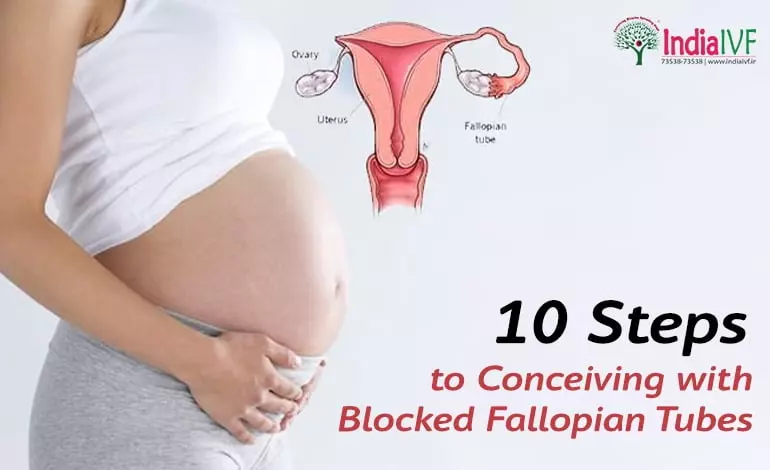Your cart is currently empty!



We’re about to embark on an enlightening journey – a voyage through the meandering paths of fertility. In the vibrant metropolis of Delhi, our beacon, India IVF Fertility, illuminates the way for countless couples on their road to parenthood. Today, we turn our spotlight on a topic that’s often shrouded in mystery – getting pregnant with blocked fallopian tubes
. But don’t worry, we’re here to demystify the process and arm you with a roadmap for your journey.
Blocked fallopian tubes can be a speed bump on the road to starting a family. But guess what? It’s a hurdle you can certainly leap over with the right guidance and treatment. Before we dive into the “how”, let’s take a quick detour to understand the “why”.
Fallopian tubes are the vital highway connecting your ovaries and uterus. This is where the magic of conception usually happens. So, you can see why a blockage could cause a bit of a traffic jam in your journey to motherhood.
Now, you might be wondering, “what’s causing this roadblock?” Well, it can be a variety of things – from infection and inflammation to endometriosis or prior surgeries. But remember, while these are common culprits, every person is unique, and so is their fertility journey.
Here’s where the rubber meets the road. Let’s talk about the 10 steps to get pregnant even with blocked fallopian tubes.
Please note that this is a general guideline, and individual experiences may vary. Always consult with a healthcare professional for personalized advice.
Dealing with blocked fallopian tubes can be a challenging journey, but it’s important to remember that you’re not alone. By understanding the issue and following the steps to address it, the dream of parenthood can still become a reality.
The fallopian tubes are two thin tubes that connect the ovaries to the uterus. They are crucial for natural conception because they allow an egg released from an ovary to meet sperm for fertilization and then transport the fertilized egg into the uterus for implantation.
Blocked fallopian tubes prevent the sperm from reaching the egg for fertilization, and if fertilization does occur, it hinders the fertilized egg from traveling to the uterus. This blockage can lead to infertility.
Several conditions can cause blockages, including pelvic inflammatory disease, sexually transmitted infections, endometriosis, certain types of surgery, or scar tissue from previous pelvic surgery.
Symptoms of blocked fallopian tubes can be minimal or nonexistent, so many women are unaware of the condition until they have difficulty getting pregnant. A specialized X-ray called a hysterosalpingogram (HSG), ultrasound, or laparoscopy can help diagnose this condition.
It is very difficult to get pregnant naturally if both fallopian tubes are fully blocked because the egg cannot meet the sperm for fertilization. However, if only one tube is blocked or the blockage is partial, natural conception may still be possible.
Treatment may involve surgery to remove the blockage or, in some cases, to remove the fallopian tube entirely. For women who cannot have surgery or for whom surgery was not successful, assisted reproductive technologies like in vitro fertilization (IVF) may be recommended.
IVF involves fertilizing the eggs outside of the body in a laboratory and then implanting the embryos into the uterus. This process bypasses the fallopian tubes, so it can be an effective treatment for women with blockages.
The success of surgery depends on the cause and extent of the blockage, as well as the woman's age and overall health. Even after successful surgery, there may be an increased risk of ectopic pregnancy.
The success rate of IVF varies depending on various factors, including age, cause of infertility, and quality of the eggs and sperm.
Maintaining a healthy lifestyle can always contribute positively to your overall health, including reproductive health. Eating a balanced diet, staying physically active, avoiding smoking and excessive alcohol, and managing stress can be beneficial. However, these changes alone are unlikely to unblock the tubes. It's best to consult with a healthcare provider for a comprehensive treatment plan.
At India IVF Clinics we provide the most comprehensive range of services to cover all the requirements at a Fertility clinic including in-house lab, consultations & treatments.